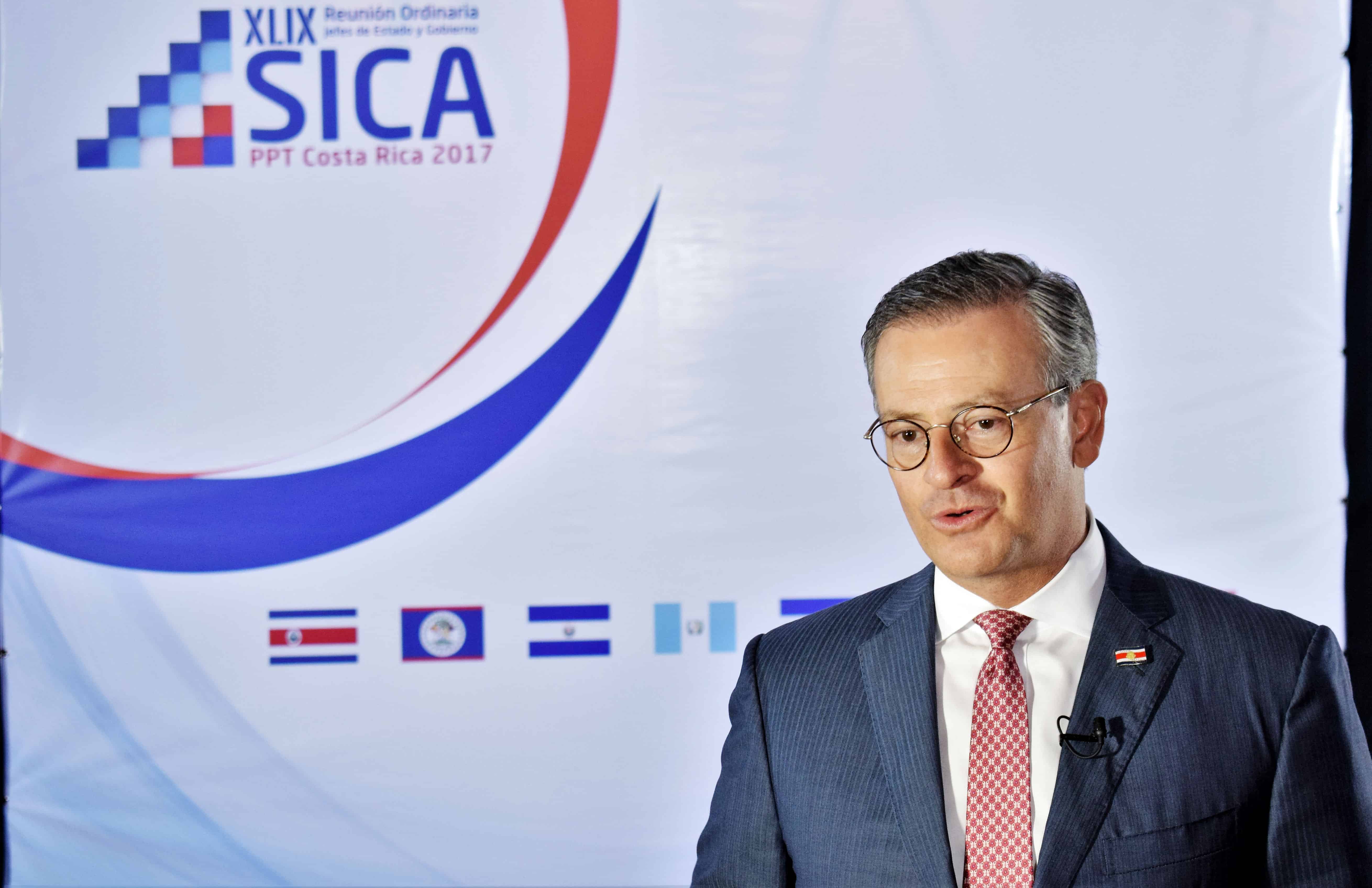Costa Rica and Nicaragua are now set to begin a new chapter in their epic border disputes before the International Court of Justice (ICJ) at The Hague.
Legal teams from both countries will present their allegations regarding Costa Rica’s request to set of maritime borders with Nicaragua. They will also address Costa Rica’s complaint about the presence inside its territory of a Nicaraguan army camp in January.
Hearings will take place at the Court between July 3-13.
Costa Rica’s Foreign Minister Manuel González Sánz said at a press conference on Wednesday that the government’s primary goal during the hearings “is the absolute defense of our sovereignty over our boundaries.”
Costa Rica requested maritime boundaries both in the Pacific Ocean and the Caribbean Sea after complaining that Nicaragua has been offering oil concessions in maritime blocs inside its territory.
In 2013, the Foreign Ministry sent a letter to Managua asking for the “immediate withdrawal” of all promotional materials relating to concessions listed in the publication “Petroleum Promotional Folder of Nicaragua,” produced by Nicaragua’s Energy and Mines Ministry.
At the time, González named 55 blocs for oil exploration and development in the Caribbean and 18 in the Pacific that “indisputably” lie in Costa Rican territory.
On Wednesday, González told reporters that the government “has done serious and solid technical and legal work” to prepare for the case. He also confirmed that he would attend the first two days of the hearings, and said that he estimates that justices could issue a ruling in late 2017 or early 2018.
Compensation payment
But the current disputes between the two countries don’t end there. Costa Rica still has pending legal proceedings against Nicaragua after that country refused to settle on a compensation figure for environmental damages caused during its dredging of the San Juan River, a natural border between both countries.
ICJ Justices ruled in favor of Costa Rica in that case on Dec. 16, 2015, and concluded that Nicaragua violated international law by occupying Costa Rican territory and by causing environmental damage.
The Court granted the countries one year to reach an agreement on a compensation figure, but Nicaragua rejected the $6.7 million that Costa Rica requested. Therefore, Costa Rica filed a new petition asking the ICJ to set a final figure.
The Foreign Ministers of both Costa Rica and Nicaragua are participating this week in the summit of the Central American Integration System in San José.
Minister González, however, said that he has not discussed anything about the new border dispute with his Nicaraguan counterpart, Denis Moncada Colindres.
“It all will be resolved at The Hague,” he told reporters at the press conference.
González confirmed that Costa Rica’s legal team before the ICJ is the same one that won the previous cases against Nicaragua.
Below is a timeline of events in the Costa Rica–Nicaragua border dispute since 2010:






